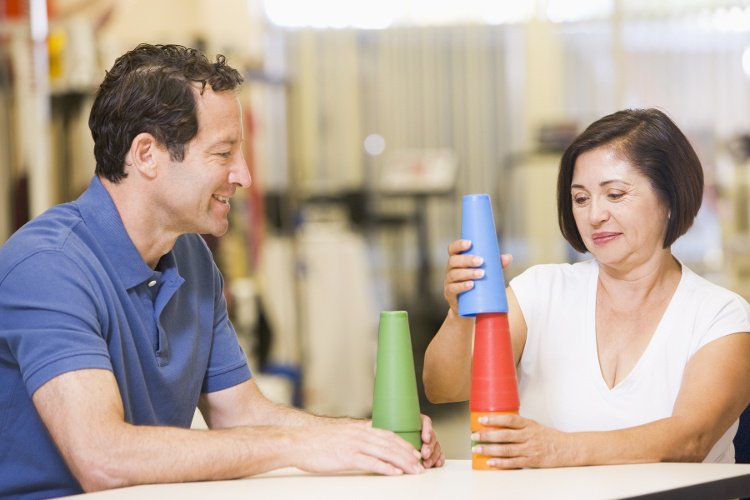
Recovering from a stroke can have its ups and downs. One minute, your senior mom may seem to be doing great, and the next, suddenly all signs of progress stop. To make sure that Mom’s recovery goes as easily and as smoothly as possible, consider the following tips.
1. Use Therapy to Aid in Recovery
Physical therapy after a stroke can help Mom avoid certain conditions and issues like “foot drop”, which can impair balance and make walking more difficult, making falls and injuries a higher probability in stroke survivors. Often times, a stroke affects one side of the body more than the other. A special type of therapy, while expensive, is called constraint-induced movement therapy. It can help Mom to practice using her weaker side by restricting movement on the other side of her body. If it’s too difficult to find or afford this type of therapy, you can always encourage Mom to start some simple exercises that she can do in her home. Exercise can help with fatigue and muscle weakness that are often seen in people who have recently had a stroke.
2. Watch for Changes in Mood
Depression is very common in people who are recovering from a stroke. Pay close attention to Mom’s mood and notify her doctor if you notice any of the following signs of depression: anxiety, agitation, feelings of hopelessness, loss of interest in things once loved, waves of extreme rage or sadness, changes in sleep patterns (too much or not enough sleep), loss of appetite, sudden weight gain or weight loss, excessive crying, and any other changes that seem out of the ordinary.
3. Avoid Malnutrition with Vitamins and Supplements
Dysphagia, or problems swallowing, affects up to 65 percent of people who have recently had a stroke. As a result of not being able to chew and swallow properly, many stroke survivors experience malnutrition. Most people do eventually regain the ability to eat normally, but if Mom is struggling with throat and mouth issues, ask her doctor if a daily multivitamin and supplements are right for her.
4. Have Mom’s Driving Abilities Assessed
After a stroke, your senior mom may lose the ability to perform many tasks of daily life for one reason or another. It can be frustrating and depressing for her. If Mom can no longer drive, isolation is a very real issue you might be facing soon, but driving may still be a possibility. The Association for Driver Rehabilitation Specialists provides a program for persons with disabilities or impairments. Search here to see if this program is available in your area. Before letting Mom get behind the wheel again, discuss all big changes with her doctors.
5. Make Socialization a Priority
It’s important that all seniors make sure to socialize, but socialization is especially important for seniors who have had a stroke. One of the reasons that so many stroke survivors seem to stall in their recoveries is because of poor socialization post-stroke. A strong support system can help make sure that Mom doesn’t start to feel isolated or depressed. Reach out to Mom’s family and friends and find a few special people who will make sure to check in on her along with you. Neighbors and old friends and relatives who live close by are great for this type of care.
6. Find a Specialist if Progress Stalls
Stroke recovery should follow a fairly predictable path. Your senior mom will go through some rehabilitation in the hospital, then she will probably be sent to several sessions of outpatient rehabilitation therapy. Sometimes after going to rehabilitation for a while, the stroke survivor can seem to stall in their recovery. If Mom seems to have reached a plateau in her recovery progress, try going back to her doctor and requesting a specialist like a physiatrist, which is a doctor who specializes in rehabilitation and restoration of function.
7. Watch for Later Decline
Sometimes, stroke survivors will not only stall in the recovery progress, but they will seem to slide backward in what is known as later decline. This can happen for several different reasons, like an injury that went previously unnoticed or another small stroke that happened sometime after the original stroke. If you notice that your senior mom seems to be back-pedaling in her recovery, contact her doctor. It’s very likely that a new assessment and more rehabilitation therapy are needed.

